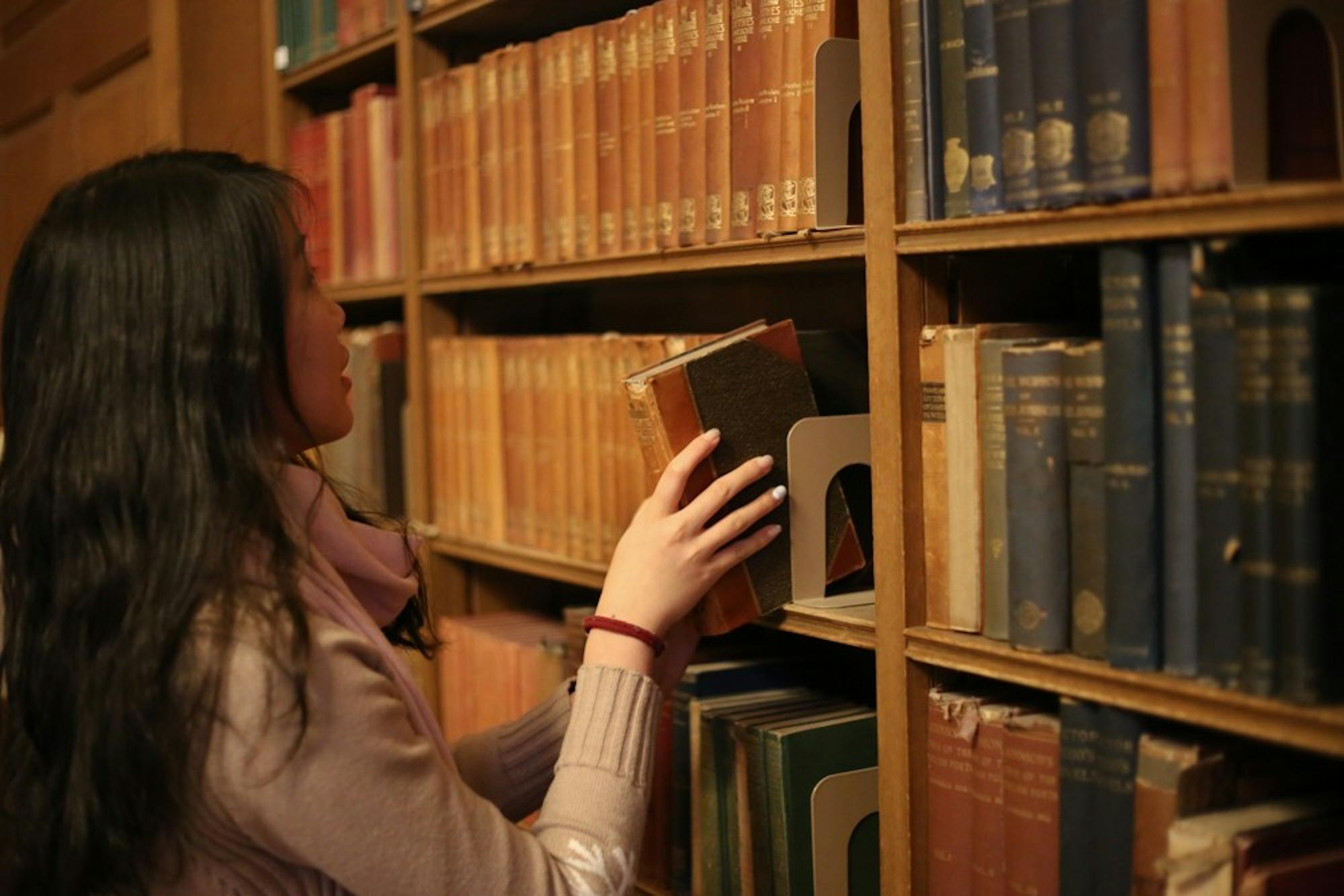Baker-Berry Library announced in an email distributed to faculty that it will deaccession, or permanently remove, 59,000 books and journals, or about 2.9 percent of its collection, over the course of the next three years in response to dwindling storage space.
According to Barbara Sagraves, the interim associate librarian for information services, the library is currently at maximum capacity. The standard for shelving is that shelves should only be at 80 percent capacity to provide leeway for adding to the collection, she said. Sagraves added that collection management “should be an ongoing activity of any library.”
The deaccessioning program, which will occur from January 2018 to June 2020, will target print materials that are already accessible from other institutions or that no longer support the current curriculum,” according to the email. Deaccessioned books will be listed on the library’s website and offered to other libraries and organizations.
Capacity has been an issue at Baker-Berry for several years, Sagraves said, adding that shortly after the library collection expanded from Baker into Berry in 2000, the shelves rapidly filled to capacity. The library already routinely deaccessions a smaller portion of its collection every year, but the current deaccessioning will be on a larger scale, Sagraves explained. After the three-year period, the library will revert to more typical deaccessioning levels of about 3,500 volumes per year.
The library’s website notes that pruning collections is something most libraries do. Dartmouth’s relatively infrequent deaccessioning throughout history makes it an outlier among libraries across the world, according to the website.
According to the library’s website, the upcoming deaccessioning “should give the library room to continue purchasing new materials at [its] current rate for years to come.”
Humanities and social sciences librarian Wendel Cox said that reducing the library collection will decrease the area needed for overflow collections, which will make it easier for researchers to find material. It will also make it easier for the library to keep the stacks organized, Sagraves said.
“Undergraduate students will find it easier to browse the stacks and find the items they need,” Sagraves said. “It won’t be noticeable other than ease of use.”
While the College is reducing its own collection of books, community members will not necessarily lose access to all texts that are deaccessioned. This is because of the College’s partnerships with other academic libraries, which allows them to borrow volumes that are not in Baker-Berry’s own collections. For example, students and faculty are able to borrow books from the Ivy Plus libraries, consisting of the eight Ivy League members plus the University of Chicago, Duke University, Johns Hopkins University, the Massachusetts Institute of Technology and Stanford University, through the BorrowDirect system.
Each year of the deaccessioning process, three librarians will be selectors, in charge of choosing which books to deaccession in their subject specialties, Cox said. For the first year of the process, Cox, head of research and instruction services Ridie Ghezzi and reference bibliographer for geography and maps Lucinda Hall will be leading the deaccessioning.
According to Cox, the librarians will begin by deaccessioning duplicate books within the library collection. Then the librarians will likely use circulating statistics to find books that are not frequently checked out, he said.
“Significant portions of [the] library collection have never been used,” Cox said.
Furthermore, due to the College’s participation in the Ivy Plus library, there is “an exceedingly low risk that [the library] would be deaccessioning a book that is the only known survivor,” Cox said.
The library’s email statement to faculty mentions that it will focus on keeping volumes that are unique to the College or that are frequently used.
Baker-Berry wants the deaccessioning process to be “an organized and open process,” Ghezzi said.
The library will have a website to communicate with faculty to ensure that books important in specific fields or part of course curricula are not removed, Ghezzi said. Books that have been selected for deaccessioning will be posted on the website, she said, adding that if faculty members have not expressed objection within two weeks of a book going on the site, the book will be deaccessioned. Those with objections about a book’s removal should reach out to the relevant subject librarian.
Cox said that Baker-Berry will send the Center for Research Libraries, Ivy Plus partner libraries and the Internet Archive discarded books that the other libraries need. If none of these groups need a particular book, Baker-Berry will give it to Better World Books, a group that will recycle, resell or donate the book and




